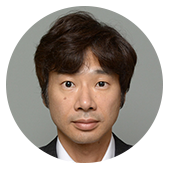The principles spell out the country's export rules for defense equipment. The parties have been talking since April in an effort to bring together any points of contention for future review.
War in Ukraine creating urgency
The first rule bans the transfer of defense equipment to countries involved in conflicts.
But the ruling coalition is trying to expand the countries subject to the rules by adding the concept of "support for a country under invasion." This is to allow Japan to provide Ukraine with active military support, including the provision of lethal equipment.
As Western countries and South Korea continue to provide military support to Ukraine and neighboring countries, the ruling coalition hopes to bring Japan in line with those countries that have ramped up exports of tanks and aircraft to Kyiv.
Keeping Japan's defense industry alive
The ruling parties are also trying to allow Japan to export internationally developed equipment to third countries.
The "three principles on defense equipment transfers," which were approved by the Cabinet in 2014, also include allowing a transfer if it is for the purpose of contributing to peace or international cooperation. In addition, a country importing defense equipment from Japan must obtain Japan's consent to export it to a third country.
The ruling coalition has in mind the next-generation fighter jet that Japan will jointly develop with the UK and Italy. It is expected to have excellent stealth capabilities and advanced information networking. The defense ministry aims to put the fighter into operation in the mid-2030s.

Lawmakers in favor of exports argue that if the strict voluntary restrictions were to remain in place, Japan's defense industry will continue to decline.
Concerns over the move
Since the end of World War Two, Japan has been cautious about arms exports in light of the pacifism enshrined in its constitution.
Some people say the move to review the rules could undermine that principle. They say Japan shouldn’t be a source of weapons, nor should it benefit from arms trading.
The ruling coalition will resume full-fledged discussions on the review in the fall or later, based on the points of contention it has compiled this time.
Attention is now focused on how the debate will unfold as it relates to the country's determination to not become involved in overseas wars.

